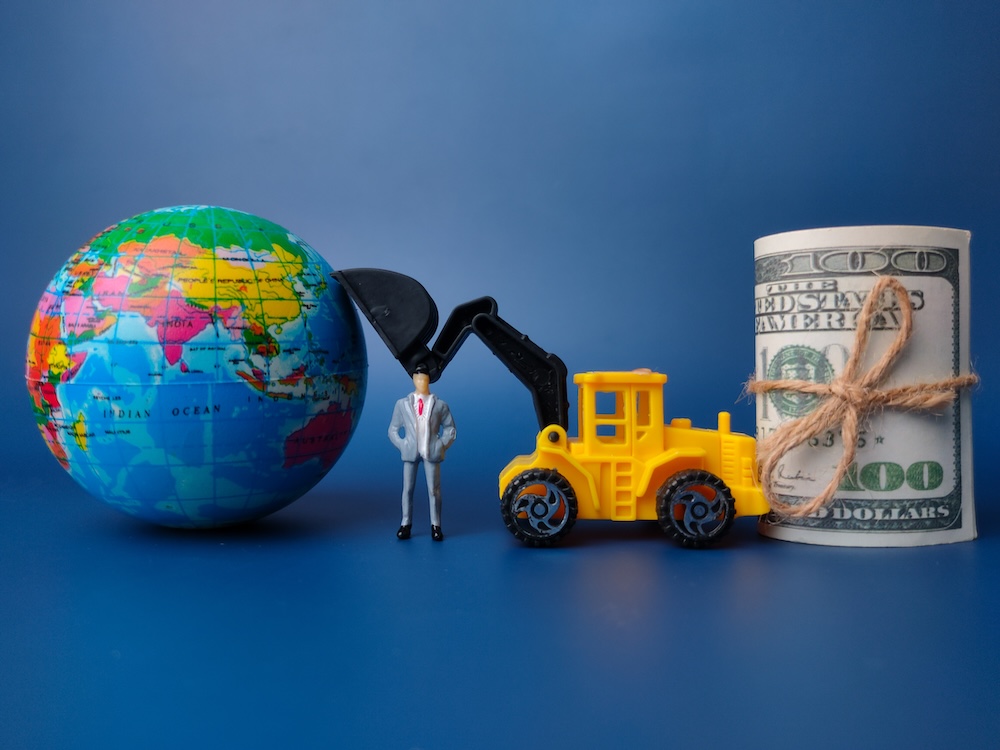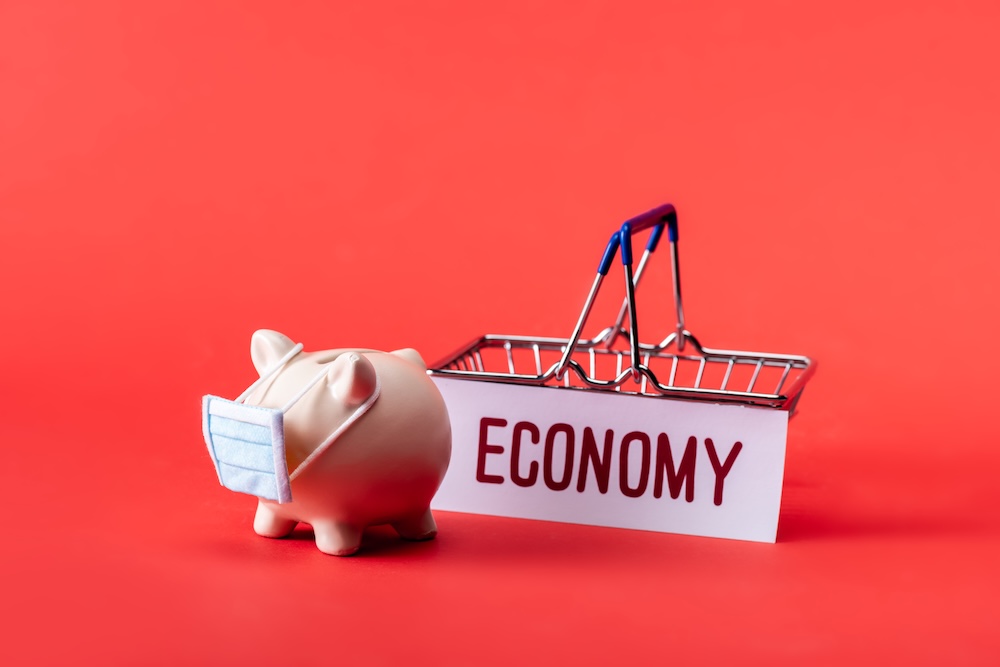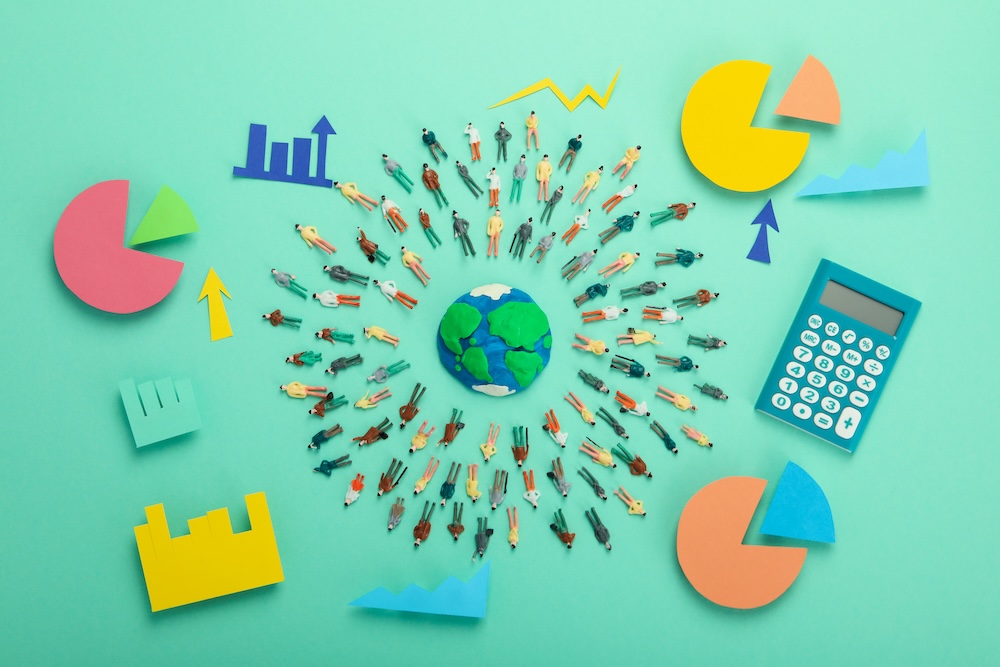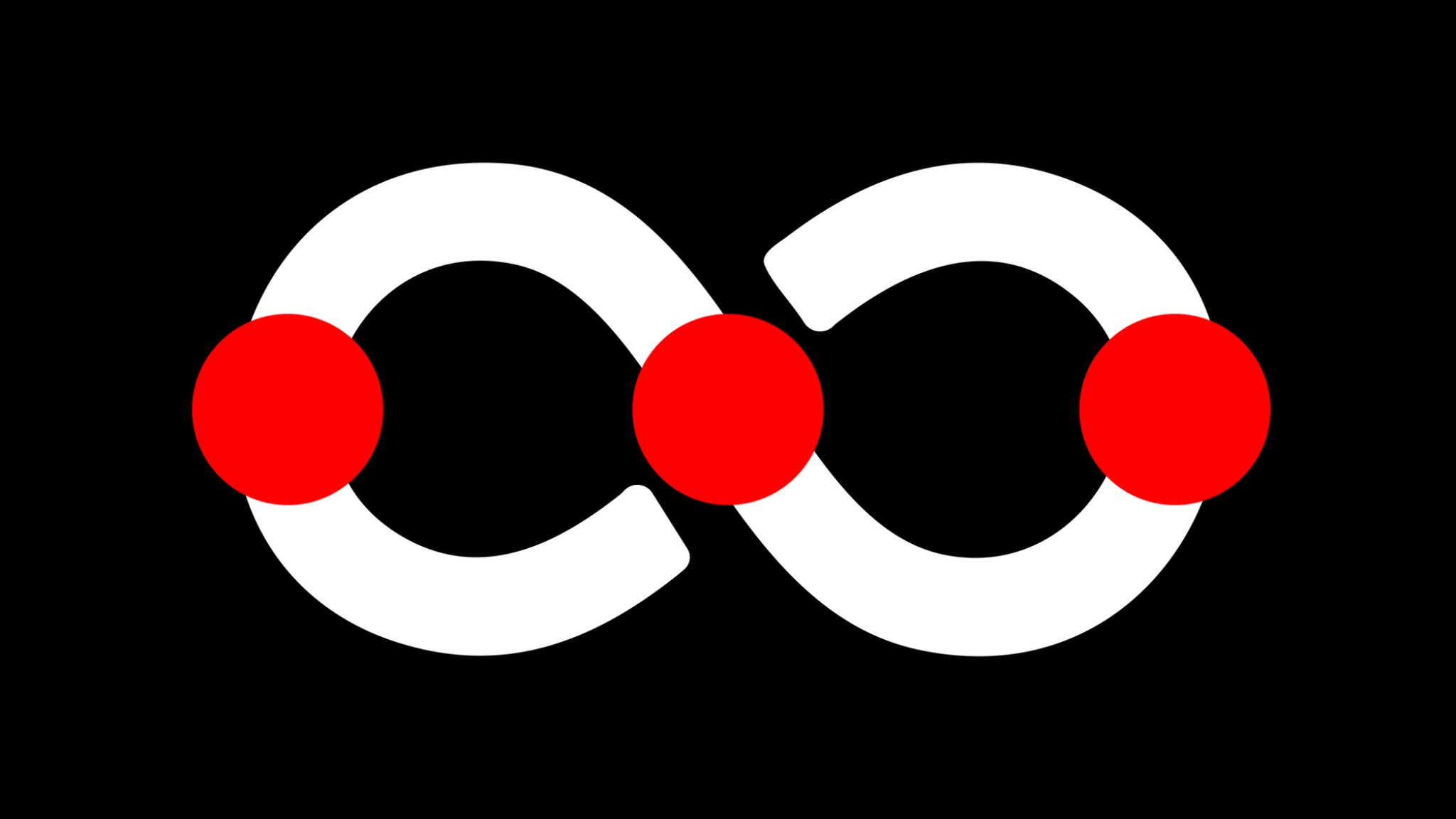The COVID-19 pandemic changed the world's economic and social systems in a big way, revealing long-standing weaknesses and inequalities that had been building for decades. The World Economic Forum started a big project in June 2020 called "The Great Reset." It is a full economic recovery plan that aims to rebuild after the COVID-19 crisis while also dealing with long-term problems like climate change, inequality, and bad business practices.
Klaus Schwab, the founder and executive chairman of the World Economic Forum, is leading this effort, which is one of the biggest attempts to rethink global capitalism in the 21st century. But it has also come under a lot of scrutiny, real criticism, and conspiracy theories that make it hard to see what the proposals are really about.

Where It Came From and What It Means
The Great Reset initiative arose from the acknowledgment that the pandemic had established what Klaus Schwab described as a "rare but narrow window of opportunity" to fundamentally transform economic and social systems. In his 2020 book "COVID-19: The Great Reset," which he co-wrote with economist Thierry Malleret, Schwab said that the world had three important choices: going back to the way things used to be, trying to make small changes, or taking advantage of the situation to make big changes.
The initiative is based on Schwab's decades-long support for "stakeholder capitalism," which is a model that looks at the needs of all stakeholders, such as employees, customers, suppliers, communities, and the environment, rather than just the needs of shareholders. This way of thinking was already popular with business leaders. For example, 181 CEOs of major American companies signed the Business Roundtable's 2019 statement that changed the definition of a corporation's purpose from making money to something else.
The Three Main Parts of the Great Reset
The Great Reset framework is built on three pillars that are all connected and meant to help solve the biggest problems the world economy is facing right now:
1. Guiding Markets Toward More Fair Results
The first pillar is about making the "stakeholder economy" possible by changing tax, regulation, fiscal policy, and trade agreements. The goal is to make things fairer by making sure that markets serve the needs of society as a whole, not just the needs of capital owners.
This means supporting policies that deal with income inequality, make social safety nets stronger, and make sure that the benefits of economic growth are shared more widely. The initiative calls for tax systems that are more fair, stronger protections for workers, and rules that stop too much market power from being concentrated in one place.

2. Building Back Better: Strength and Long-Term Viability
The second part talks about how spending on pandemic recovery and private investments can make economic systems that are more stable, fair, and long-lasting. This pillar doesn't just call for going back to how things were before the pandemic. Instead, it calls for "building back better" by investing in green infrastructure and using Environmental, Social, and Governance (ESG) metrics to make business decisions.
Some important parts are speeding up the switch to renewable energy, putting money into green urban infrastructure, encouraging circular economy ideas, and giving businesses reasons to do better for the environment and society. The initiative also stresses the importance of making the supply chain more flexible and diverse to avoid problems in the future.
3. Taking advantage of the Fourth Industrial Revolution
The third pillar is about using new technologies to help the public instead of making problems worse. This includes rules for new technologies like quantum computing, biotechnology, artificial intelligence, and digital platforms.
The "Fourth Industrial Revolution" is Schwab's idea of a mix of technologies that make the lines between physical, digital, and biological spheres less clear. The Great Reset wants to make sure that these technologies are used in ways that improve people's abilities, create jobs that matter, and solve global problems instead of taking jobs away from people or giving tech giants more power.
Stakeholder capitalism and ESG integration
The idea of stakeholder capitalism is at the heart of the Great Reset. Schwab has been a proponent of this idea since he started the World Economic Forum in 1971. Stakeholder capitalism is different from the shareholder primacy model that has been around for a long time. It requires companies to think about the needs of everyone who is affected by their business.
The World Economic Forum has created a full set of "Stakeholder Capitalism Metrics" that includes 21 core and 34 expanded ESG metrics and disclosures. Companies can use these to measure and report on their performance beyond just making money. These measurements cover four main areas:
- Principles of Governance: The makeup of the board, how members act ethically, and how they manage risk
- Planet: Climate change, loss of nature, and access to fresh water
- People: Dignity and equality, health and well-being, and skills for the future
- Prosperity: Making money and jobs, coming up with new ideas, and helping the community grow
More than 150 major global companies have promised to use these metrics in their reports. This is a big step toward more corporate accountability.

The Fourth Industrial Revolution Context
Schwab's larger idea about the Fourth Industrial Revolution is important to understanding The Great Reset. The current industrial revolution is different from past ones that were based on steam power, electricity, or computers. This one is marked by the coming together of many technologies and their rapid growth.
Some of the most important technologies that are making this change happen are:
- AI and machine learning
- Robots and systems that work on their own
- The Internet of Things (IoT) and devices that are connected to it
- Blockchain and other technologies for distributed ledgers
- Quantum computing
- Genetic engineering and biotechnology
- Nanotechnology and advanced materials
- Digital fabrication and 3D printing
Schwab says that these technologies could greatly improve people's lives, but only if they are used and controlled carefully. If they aren't properly governed, they could cause mass unemployment, make inequality worse, and give more power to the people who control the technology.
A model for multi-stakeholder governance
The proposed change to global governance structures is an important but often overlooked part of the Great Reset. The initiative calls for a "multi-stakeholder" approach that includes not only governments but also businesses, civil society groups, and other non-state actors in making decisions that affect the whole world.
This model goes against the idea of traditional multilateralism, in which democratically elected governments make decisions through organizations like the United Nations. The multi-stakeholder approach, on the other hand, lets businesses and other groups have a direct say in how the world is run.
Supporters say this method is more flexible and works better than traditional diplomacy, citing successful public-private partnerships in vaccine development and distribution during the pandemic. Critics, on the other hand, are worried about democratic accountability when corporate leaders who aren't elected have a say in public policy decisions.
Real Concerns and Criticisms
People often talk about conspiracy theories when they talk about the Great Reset, but there are some real criticisms that are worth looking into:
Democratic Accountability
The multi-stakeholder governance model brings up questions about how well democracy works. When businesses and private groups have direct control over policy choices that affect whole populations, it can weaken democratic processes and ways to hold people accountable.
Concentration of Corporate Power
Critics say that stakeholder capitalism, even though it is well-intentioned, could actually give companies more power by letting them have more say over social and environmental policies and letting them avoid stricter government rules.
Problems with Implementation
There is still a big difference between what companies say they will do and what they actually do when it comes to stakeholder capitalism. A lot of companies have made big promises about their ESG commitments, but they have trouble making real changes. This has led to accusations of "greenwashing" and "superficial compliance."
Inequality Around the World
Some people are worried that the Great Reset's focus on technological solutions and corporate-led projects could make the gap between developed and developing countries even bigger, since advanced economies benefit more from Fourth Industrial Revolution technologies.
Lies and Conspiracy Theories
Sadly, the Great Reset has become linked to a lot of conspiracy theories that have nothing to do with the actual project. A lot of these theories say that the pandemic was made on purpose to let the world be taken over, that the initiative wants to get rid of private property, or that it is part of a plan to set up an authoritarian world government.
The Institute for Strategic Dialogue and other groups have looked into how these conspiracy theories spread on social media, often with the help of politicians who want to take advantage of people's fears about the pandemic. The theories mix real worries about corporate power and democratic accountability with false claims about controlling the population, forcing vaccinations, and spying on people around the world.
The Conspiracy Problem
The conspiracy theory has been especially harmful because it stops people from having real conversations about the real problems brought up by the Great Reset initiative, such as corporate power, technology governance, and economic inequality.
Differences by Region and Political Responses
Different countries and political situations have reacted to the Great Reset in different ways. The initiative fits in with existing policy frameworks in Europe, such as the European Green Deal, and has generally been well received by government leaders.
People in North America have reacted in a more divided way. Some business leaders and policymakers have supported the ideas behind stakeholder capitalism, while others have said they are bad for free market capitalism. Politicians in Canada, like Pierre Poilievre, have used opposition to the Great Reset as a campaign tool, mixing real policy concerns with conspiracy theories at times.
The initiative has also had problems in developing countries, where the focus on advanced technologies and ESG metrics may seem out of touch with more pressing issues like reducing poverty, improving access to healthcare, and building basic infrastructure.
Progress and Results of Implementation
The Great Reset has had mixed results since it started four years ago. On the plus side, stakeholder capitalism has become widely accepted, and many businesses now take ESG factors into account when making decisions. The Stakeholder Capitalism Metrics have made it easier for companies to report more fully, and the public and private sectors have never worked together so well on issues like climate change and vaccine distribution.
But there are still big problems to solve. Geopolitical conflicts, weak supply chains, and rising prices have all caused new problems for the global economy. In many countries, income inequality has gotten worse, and efforts to fight climate change are still not enough to meet international goals.
What Will Happen Next and Other Options
The Great Reset initiative is being questioned about how useful and relevant it is now that the world is moving past the worst parts of the COVID-19 pandemic. Some people say that the chance to make big changes to the economy has passed because governments and businesses are too busy with other things.
Some people say that the problems the Great Reset is trying to solve—inequality, climate change, and technological disruption—have only gotten worse. They say that we should double down on stakeholder capitalism while making democratic oversight and accountability stronger.
There are also new ways to change the economy, such as the European Green Deal and the U.S. The Inflation Reduction Act depends more on public investment and regulation than on private sector leadership.
"The COVID-19 pandemic has given us a chance to make things better, but we will need more than promises from businesses and meetings of world leaders to take advantage of that chance. To make sure that economic change is good for everyone, we will need ongoing democratic participation, good government leadership, and real ways to hold people accountable."
Conclusion: Assessing the Great Reset
The Great Reset is a big effort to solve some of the most important problems of our time by using a mix of stakeholder capitalism, technological governance, and cooperation among many stakeholders. The initiative has succeeded in some ways in promoting ESG integration and collaboration between the public and private sectors. However, it has also brought up important issues about corporate power, democratic accountability, and global governance.
Instead of calling the Great Reset a cure-all or a conspiracy, it's better to look at its real proposals and keep an eye on what they mean. The problems it wants to solve—climate change, economic inequality, and technological disruption—are real and need to be dealt with right away, even if the solutions it offers aren't perfect.
Going forward, it might be best to separate the useful parts of the Great Reset, like metrics for stakeholder capitalism and frameworks for technology governance, from the more problematic parts, like unaccountable multi-stakeholder governance. This necessitates continuous democratic discourse and scrutiny to guarantee that any economic transformation benefits all citizens, rather than merely the global elite.
Critical Assessment
The Great Reset may not be the all-encompassing answer that its supporters say it is, nor the evil plan that its critics say it is. Instead, it is one way to deal with real problems that the world economy is facing. Its ultimate success will depend on how well its useful parts can be used in larger democratic processes that bring about social and economic change.
